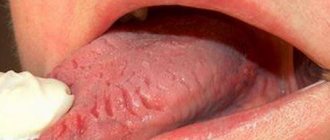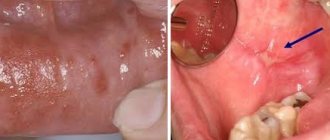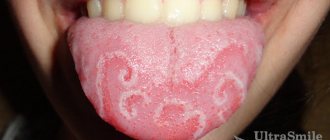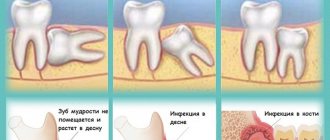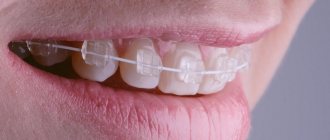general characteristics
From time to time, an unpleasant taste occurs in healthy people.
It can be caused by the accumulation of food particles due to insufficient oral hygiene, or the consumption of foods with a bright, rich taste. In most cases, the symptom is caused by pathological causes. A bitter taste is felt in the mouth mainly in the morning, immediately after waking up. Unpleasant sensations bother a person for several hours and do not disappear after rinsing the mouth with water. Bitterness or a feeling of sourness are accompanied by heartburn and a sore throat. In this case, the oral mucosa dries out, the saliva is viscous, and is released in smaller quantities. Sometimes patients complain of a strong chemical or metallic taste that lasts throughout the day. If symptoms appear with a certain frequency or constantly, you need to visit a specialist.
Prevention
If the feeling of a sticky mouth is not associated with pathological processes in the body, following simple rules will help prevent the recurrence of discomfort. So, you should drink more water, monitor the temperature and humidity in the living (working) room, and ventilate it more often.
It is mandatory to visit the dentist at least once a year and undergo appropriate treatment. As you can see, the feeling of viscosity on the oral mucosa is just a signal notifying about various malfunctions in the body. Timely identification of the causes of this pathological phenomenon and appropriate treatment will help to avoid more serious health problems.
Causes of taste in mouth
Causes of blood taste in mouth
This symptom occurs when you accidentally bite your cheek or tongue until it bleeds. The characteristic taste in the mouth, repeated several times a week, is due to pathological reasons. The main diseases that cause a taste of blood in the mouth are:
- Dental diseases
: gingivitis, stomatitis, periodontitis. - ENT pathology
: sinusitis, chronic atrophic rhinitis. - Damage to the gastrointestinal tract
: erosive esophagitis and gastritis, peptic ulcer, dilation of the esophageal veins. - Cardiovascular disorders
: hypertension, angina, vasculitis. - Rare causes
: tuberculosis, lung cancer, bronchial asthma.
Causes of bitter taste in mouth
Bitterness is most often felt in the morning, but sometimes the symptom bothers the patient during the day. The bitter taste is accompanied by nausea, loss of appetite, sometimes vomiting with bile, and a specific unpleasant smell of rotten breath. A bitter taste in the mouth can be caused by the following reasons:
- Age-related mucosal atrophy in the elderly
. - Pregnancy
. - Bad habits
: smoking, alcohol abuse. - Liver pathologies
: autoimmune, viral or toxic hepatitis, cirrhosis, fatty degeneration. - Damage to the biliary tract
: cholecystitis and cholangitis, bile duct dyskinesia, cholelithiasis. - Gastrointestinal diseases
: functional dyspepsia, chronic gastritis, duodenitis. - Neurological disorders
: consequences of traumatic brain injury, residual manifestations of stroke, Alzheimer's disease. - Iatrogenic conditions
: placement of fillings, dental prosthetics. - Complications of pharmacotherapy
: treatment with chemotherapy drugs, antihistamines, antibiotics.
Causes of metallic taste in mouth
An unpleasant sensation is more often observed after consuming untreated tap water that passes through poor quality pipes covered with rust. The taste of iron also appears when cooking or storing food in aluminum cookware. Possible pathological causes of a metallic taste in the mouth:
- Anemia
: iron deficiency, B12 deficiency. - Foreign bodies
: piercings on the tongue or lips, low-quality metal dentures. - Hormonal changes
: pregnancy, menopause. - Chemical poisoning
: mercury, lead, copper, arsenic. - Exposure to radiation
. - Diseases of the urinary system
: chronic glomerulonephritis, interstitial nephritis, renal failure. - Gastrointestinal diseases
: esophageal erosion, bleeding gastric ulcer, esophageal varicose veins. - Complications of pharmacotherapy
: taking antiprotozoal, antacid antihypertensive drugs.
Causes of sweet taste in mouth
A constant taste of sweetness is observed in people who abuse confectionery and chocolate. If the symptom is not associated with food intake, unsweetened foods predominate in the diet, this indicates serious problems. The main reasons for which a sweet taste appears in the mouth:
- Diabetes
. - Pregnancy, gestational diabetes
. - Dental diseases
: caries, periodontitis, stomatitis. - Diseases of the digestive system
: chronic pancreatitis, GERD, hyperacid gastritis. - Exposure to pathogenic microorganisms
: Pseudomonas aeruginosa, staphylococci and streptococci. - Neurological disorders
: damage to the facial nerve, chronic stress. - Pesticide poisoning
.
Causes of acetone taste in the mouth
A sharp chemical taste is often the result of changes in metabolic processes and the accumulation of ketone bodies. This symptom does not occur normally and always indicates serious disturbances in the functioning of the body. The unpleasant smell and taste of acetone in the mouth is caused by the following reasons:
- Following a low-carbohydrate diet
. - Endocrine diseases
: diabetes mellitus and its complication - ketoacidotic coma, thyroid dysfunction. - Kidney damage
: glomerulonephritis, acute and chronic renal failure, necronephrosis. - Liver pathology
: fibrosis and cirrhosis, Wilson-Konovalov disease, neoplasms.
Types of viscosity
There is morning, constant, temporary dry mouth. The first is usually associated with drinking alcohol the day before (hangover) or nasal congestion. Constant viscosity indicates hormonal transformations in the body (for example, during menopause in women), is a consequence of smoking, eating a large amount of salty foods, or natural age-related changes. Short-term astringency is the result of increased dry air, increased physical activity, or prolonged use of certain groups of medications.
Diagnostics
If an atypical taste is occasionally or constantly felt in the mouth, consultation with a gastroenterologist is required. The symptom is caused by various reasons, therefore, before laboratory and instrumental examination, you should carefully collect anamnesis and accompanying complaints. The greatest diagnostic value is:
- Blood tests
. A standard blood chemistry test reveals the accumulation of ammonia and ketone bodies, which often cause an unpleasant taste in the mouth. Clinical analysis can detect a decrease in hemoglobin, changes in the size and shape of red blood cells, which is characteristic of anemia. If necessary, toxicological analysis is carried out. - Hormonal profile
. If patients complain of a sweetish sensation in the mouth, fasting sugar levels are measured. The results of an oral glucose tolerance test are indicative. To clarify the form of diabetes, the concentration of insulin and C-peptide is taken into account. If glucose levels are normal, it is recommended to determine the level of thyroid hormones. - ENT examination
. During the study, the condition of the mouth, throat, and nasal passages is examined. Frequent findings are signs of chronic inflammation, purulent or whitish deposits on the mucous membrane. Bloody crusts are sometimes found in the nose. If carious teeth or bleeding gums are detected, a person is referred to a dentist. - Endoscopy
. The causes of unusual taste sensations, which are combined with abdominal pain and painful heartburn, are diagnosed using FGDS. During endoscopy, inflammatory and destructive processes in the gastric mucosa, insufficiency of the cardiac sphincter with the flow of acidic contents into the esophagus are visualized. - X-ray imaging
. To exclude ENT causes of a persistent unpleasant taste in the mouth, an x-ray of the paranasal sinuses is performed. Excretory urography is indicated for patients with swelling, lower back pain and other signs of kidney damage. To study the condition of the intestines, a barium passage x-ray is prescribed. - Additional methods
. In women, levels of sex hormones must be examined; in young patients, the level of human chorionic gonadotropin is additionally assessed to confirm or exclude pregnancy. If lung cancer is suspected, especially in men with a long history of smoking, bronchoscopy with collection of material for cytomorphological analysis is required.
If you have an unpleasant taste in your mouth, it is important to maintain oral hygiene
Solution
Treatment is selected by a specialist based on the results of the examination and depends on the reason for the discomfort. If treatment measures are not taken in a timely manner, a lack of saliva will lead to an increased risk of developing various dental diseases.
In addition, a malfunction of the salivary glands will certainly affect local immunity (the protective functions of the oral mucosa). So, subsequently, patients may encounter the following problems: candidiasis, sore throat, stomatitis, inflammatory processes in the oral cavity.
Surgery to remove salivary glands subsequently leads to dry mouth
In this regard, if for unknown reasons you begin to feel a knot in your mouth and such sensations persist for a long time, you should seek medical help from a therapist. If necessary, the doctor will refer you for consultation to a more specialized specialist - a dentist, gastroenterologist, neurologist.
Treatment
Help before diagnosis
Many patients feel relief after rinsing their mouth with water and a small amount of lemon juice or a weak solution of soda. It is important to maintain oral hygiene: brush your teeth thoroughly 2 times a day, rinse your mouth with water after each meal, and use dental floss if necessary. In order not to suffer from bitterness in the morning, you should refrain from fatty foods and smoked foods at dinner.
Pregnant women are advised to eat often, in small portions, so as not to overload the gastrointestinal tract. After eating, you should not take a horizontal position or engage in physical labor. If an unpleasant taste in the mouth is accompanied by dyspeptic disorders, pain or a progressive deterioration of the general condition, it is important to consult a doctor in time to determine why the taste occurs in the mouth.
Conservative therapy
A specific taste occurs in many diseases, so only the main directions of therapy can be identified, and the selection of an individual set of therapeutic measures is carried out by a specialist. When caries is detected, treatment by a dentist is indicated: usually, after the elimination of chronic foci of infection, the unpleasant taste disappears. Most often used in therapeutic regimens:
- Antiseptics
. Regular rinsing of the oral cavity with a solution of chlorhexidine and its analogues ensures moisturizing and cleansing of the mucous membrane, and prevents the proliferation of pathogenic microorganisms. For stomatitis with pain, solutions of local anesthetics are used. - Antacids
. If the symptom is due to hyperacid conditions, modern non-absorbable drugs that quickly reduce acidity are recommended. A course of treatment with antisecretory agents is often required to achieve a lasting effect and healing of mucosal defects. - Choleretic drugs
. In case of biliary pathology, the composition of bile is improved and its release into the duodenum is stimulated, due to which the bitterness disappears. The drugs can be combined with hepatoprotectors to protect the liver from the effects of bile acids. - Antidotes
. Heavy metal poisoning is an indication for the prescription of specific complexones that bind and remove toxic substances from the blood. To speed up detoxification, large volumes of crystalloid solutions are administered intravenously.
